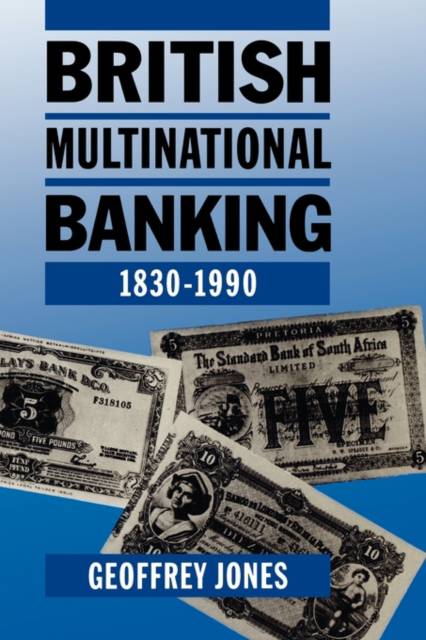
- Afhalen na 1 uur in een winkel met voorraad
- Gratis thuislevering in België vanaf € 30
- Ruim aanbod met 7 miljoen producten
- Afhalen na 1 uur in een winkel met voorraad
- Gratis thuislevering in België vanaf € 30
- Ruim aanbod met 7 miljoen producten
Zoeken
Omschrijving
This is a study of the emergence, growth, and performance of British multinational banks from their origins in the 1830s until the present day. British-owned banks played leading roles in the financial systems of much of Asia and the southern hemisphere during the nineteenth century and after. In the 1970s and 1980s they made large investments in California and elsewhere in the United States. They played major roles in the finance of international trade, in international diplomacy, in the birth of the Eurodollar market, and in the world debt crisis. This is the first modern general history of these banks. It is based on a wide range of confidential banking archives in Britain, Australia, and Hong Kong, most of which were previously unavailable. Geoffrey Jones reveals, for the first time, details of the real profits and secret reserves of these banks, and uses these data in a unique analysis of their financial performance over more than a century. Jones places this new empirical evidence in the context of modern theories of multinational enterprise and of competitive advantage. This is a lucidly written and fascinating study, which will be of importance not only to historians, but to anyone concerned with contemporary multinational banking.
Specificaties
Betrokkenen
- Auteur(s):
- Uitgeverij:
Inhoud
- Aantal bladzijden:
- 526
- Taal:
- Engels
Eigenschappen
- Productcode (EAN):
- 9780198206026
- Verschijningsdatum:
- 28/09/1995
- Uitvoering:
- Paperback
- Formaat:
- Trade paperback (VS)
- Afmetingen:
- 156 mm x 234 mm
- Gewicht:
- 857 g

Alleen bij Standaard Boekhandel
+ 203 punten op je klantenkaart van Standaard Boekhandel
Beoordelingen
We publiceren alleen reviews die voldoen aan de voorwaarden voor reviews. Bekijk onze voorwaarden voor reviews.








